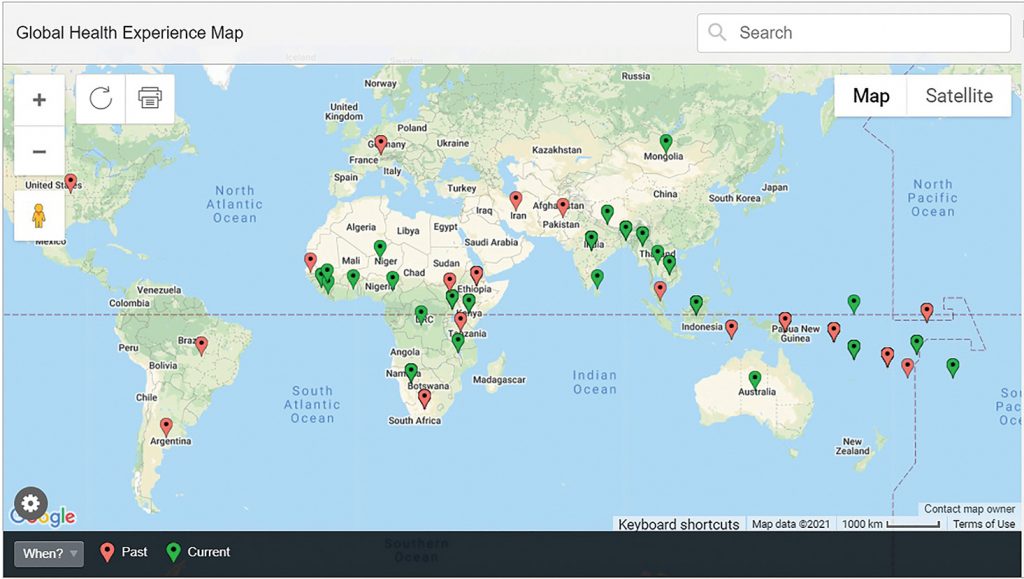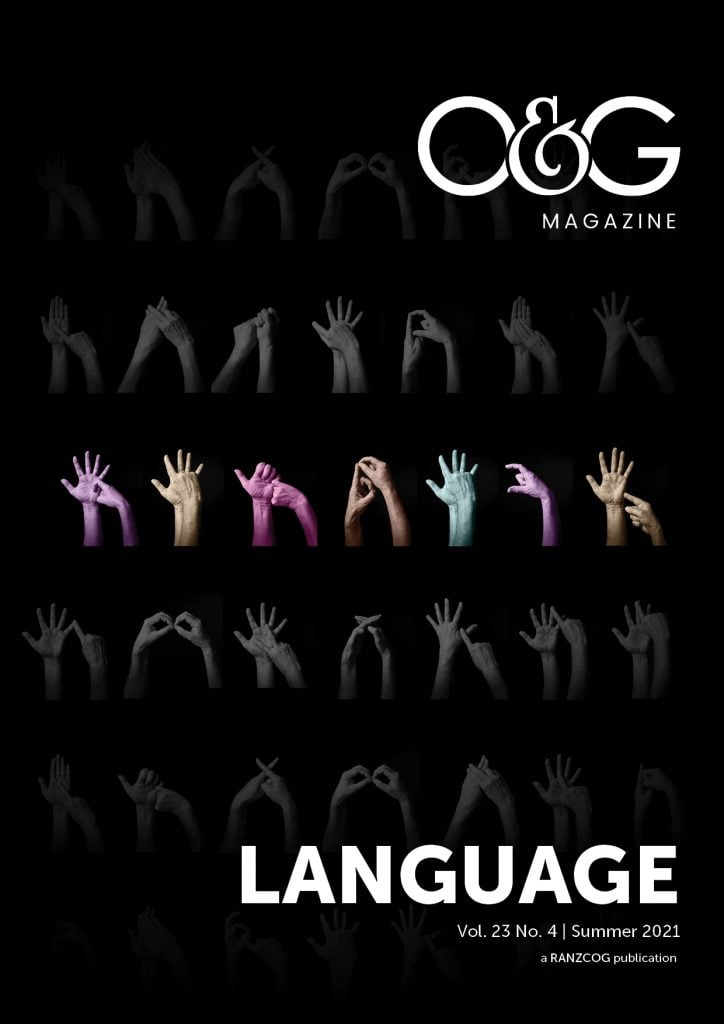RANZCOG launched the online Global Health Experience Map in early 2021.

Figure 1. Global Health Experience Map screenshot.
Detailing the volunteering and/or work experiences of College members and trainees in obstetrics and gynaecology in low- to middle-income countries, the map highlights their contribution to global women’s health. Information currently presented on the map was collected via an online form and continues to be updated and new experiences collected to maintain the map’s currency. Members and trainees who have yet to tell the College about their global health experiences can do so using this online form.
The Global Health Experience Map also serves as a useful tool for College members and trainees with an interest in contributing to global women’s health and who may wish to learn about available opportunities and pathways, and even connect with those members and trainees whose experiences are presented on the map to learn more. Information presented on the map is personalised, listing country, work undertaken, recency (past or current), timeframe (short- or long-term), and arrangements, including organisations through which the work was arranged and/or funded. Several are listed, including Médecins Sans Frontières (MSF) Australia.
Organisation showcase: MSF Australia
MSF is committed to reducing death and suffering among people who have been affected by an acute crisis and/or excluded from healthcare, often in unstable or remote regions. Pregnant and labouring women are a priority due to the potentially serious complications they face in such situations. In 2020, MSF staff assisted 306,800 births, including by caesarean section. MSF is also increasingly caring for women pre-cancer or with cancer, including cervical cancer.
Successful FRANZCOG applicants are usually placed in a maternity hospital in a country such as Yemen, Afghanistan, Pakistan or South Sudan, either fully operated by MSF or in partnership with the Ministry of Health. They join a mostly local medical team delivering high-quality care, supported by standardised MSF protocols, equipment and medicines. The specific challenges vary but the care is always adapted to the setting, so that compared to a high-income, metropolitan hospital, the relatively small medical team will be doing more, with less.
In South Sudan, for example, MSF runs projects to assist internally displaced people and people affected by ongoing violence. Hospitals may be established in tents and basic buildings in camps and small towns. MSF provides emergency care for women and children and strives to create clean, safe birthing spaces to avoid the transmission of diseases, such as tetanus to the newborns. Caesarean sections are usually only indicated for the purpose of saving a mother’s life, or to avoid long-term gynaecological complications such as fistula formation. Women also seek care having been victims of sexual violence, sometimes the targets of rape as a strategy of war.
Working with MSF as an obstetrician or midwife in such a setting is extremely challenging, as resources are limited and the conditions are very basic. Yet the benefit for individual patients is very clear, due to the lack of alternative healthcare for women and girls, and the geographic isolation of the towns.
In MSF-run maternity hospitals such as in Pakistan, MSF aims to provide care for the women within a region who have difficulty accessing other healthcare services due to cost or cultural barriers. In a well-established project such as Peshawar Women’s Hospital, MSF can also dedicate resources for ongoing improvements in care. These types of projects present a different range of tasks for midwives and obstetricians alike, who need to focus on managing a team of staff employed by MSF and providing technical support as well as training.
Although modest, occasionally there are opportunities for advanced trainees to undertake some training with MSF. Dr Andrea Atkinson started working for MSF as a general doctor and has recently completed a placement in Peshawar, working alongside local staff including gynaecologists, as part of her advanced training.
It is through Andrea’s eyes that we discover some of the work and challenges on assignment with MSF, in the accompanying article, Obstetric practice with MSF in Pakistan.






Leave a Reply